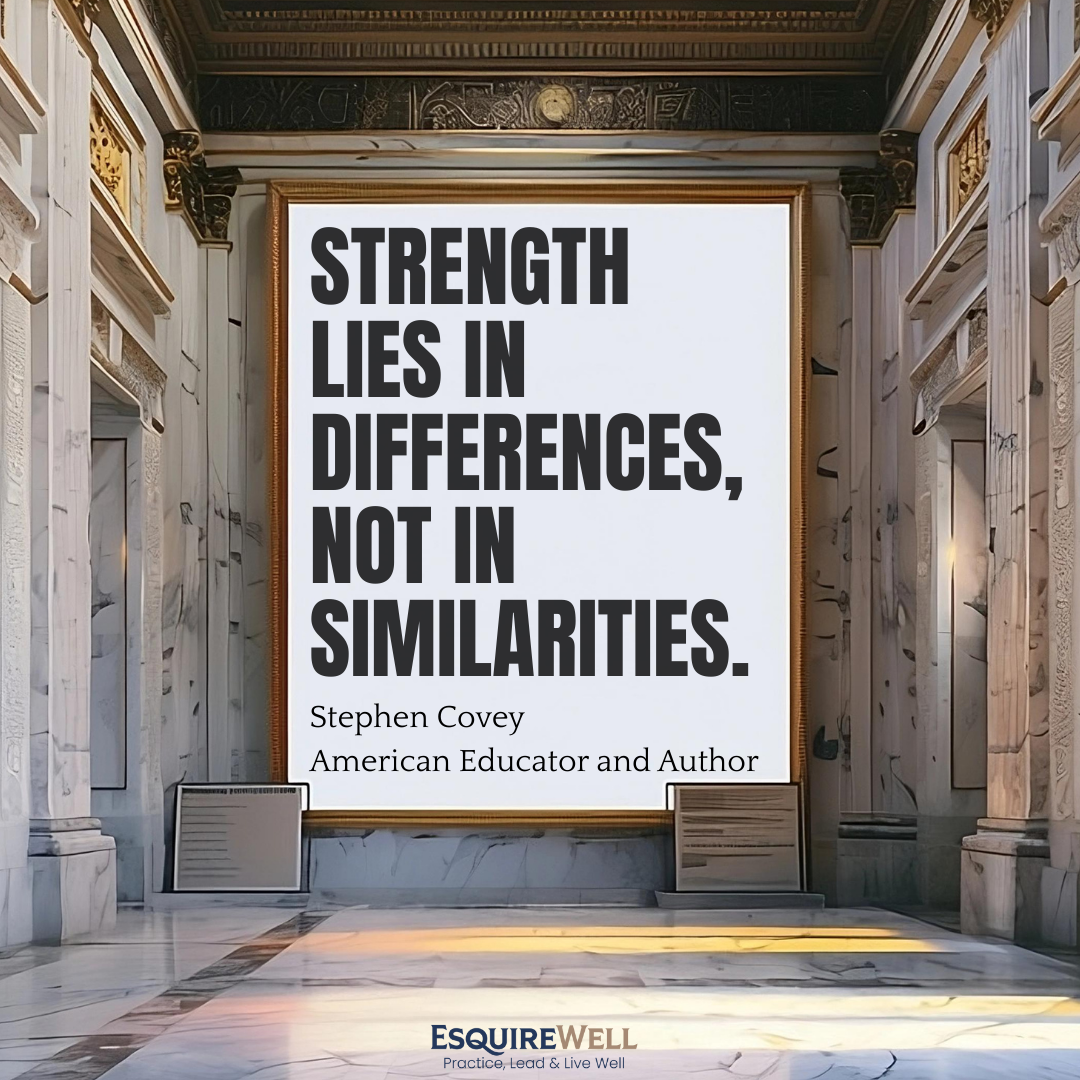The Leadership Lessons Hidden in My Family’s Story

Our family’s adoption stories span continents, cultures, unexpected challenges, and a whole lot of joy and gratitude. The unique way our family formed has also been one of my greatest teachers in leadership, particularly around humility, empathy, and honoring diverse perspectives and experiences.
Most people know we’re a family of five, but not everyone knows how different each child’s path to us has been:
Our oldest, now a college senior applying to law school, was “with me” through law school and the bar exam. I was pregnant with her during my third year of law school, so she jokes she’s “already been to law school and taken the bar exam” (clearly the mind of a lawyer is hard-wired in her!). She was the child who first taught me how to move forward while carrying someone else’s future alongside my own.
Our youngest daughter was born in Colombia and came into our family as an infant. We spent six unforgettable weeks in Bogotá finalizing her adoption - jet-lagged, overwhelmed, with a newborn and a toddler - learning entirely new rhythms overnight. She taught us about joy in uncertainty and the beauty of learning and embracing a story that began long before you arrived.
And our middle son spent the first ten years of his life in China and became a part of our family at age ten - funny, curious, and carrying a constellation of invisible and significant special needs we didn’t know about or fully understand at first. Those early months were full of recalibration: discovering what he needed from us versus what we assumed he needed. He taught us how crucial it is to see the full human in front of you, not the one your expectations created.
Three kids. Three countries. Three completely different timelines.
No two beginnings looked alike. Nothing was linear.
And yet, woven through all of it was a leadership truth I carry into every room I walk into:
Belonging doesn’t “happen.” It’s built. Slowly. Intentionally. With care.
Adoption teaches you this in a way few things can. You learn that connection isn’t guaranteed; it’s cultivated. You learn to build psychological safety before expecting trust. You learn that identity is complex, culture matters deeply, and honoring someone’s story is a form of respect and leadership.
And this is where, for me, Adoption Awareness Month, gratitude, and leadership perfectly and unexpectedly intersect:
Whether in a family or a law firm, people thrive when they feel seen, valued, and included for who they truly are, not who we imagine them to be.
So as we head into Thanksgiving, a season centered on gathering and gratitude, here are a few adoption- and trauma-informed reminders for leading well (lessons we’ve learned along our road as adoptive parents, especially as parents of a child with severe trauma, that are surprisingly just as useful in our legal workplaces):
🧡 Start with psychological safety: People can’t perform (or feel that they belong) without it. Safety fuels trust. Trust fuels performance. As trauma therapists taught us: the scared brain can’t learn, process, or perform at its best.
🧡 Honor every story in the room: Teams, like families, are made up of people with different histories, cultures, strengths, and challenges. Listen deeply. Trust people to know themselves best.
🧡 Make inclusion intentional: Belonging is never passive. It’s created through equitable actions, thoughtful communication, and ensuring every voice has space. Take the extra moment to ask yourself, “Does this action/decision exclude anyone, in reality or perception?” Humans have a deep, primal longing to feel they belong and to be a part of the team.
🧡 Connection comes before correction: Another wise gem from our trauma-informed parenting therapists and coaches: “connection before correction.” It’s just as true in our workplaces; people hear and respond to feedback best when they feel seen, safe, and respected, so taking a moment to acknowledge the human in front of you makes all the difference. When trust comes first, the feedback actually lands, and the relationship strengthens instead of frays.
🧡 Lead with empathy and humility: Two things adoption teaches constantly. Humility helps you check your assumptions and to realize there’s a lot more you don’t know than you do. Empathy helps you understand what someone actually needs to thrive. Stay open to being corrected and hearing the impact your words and actions have on others.
🧡 Practice gratitude for people, not just outcomes: Notice who shows up, how they show up, and the small moments of growth along the way. Instead of only catching people doing something “wrong” and pointing it out, also “catch them doing something right” and acknowledge that as much (or more) than the missteps. Research shows that positive feedback is actually more effective at shaping the behaviors we hope to see than negative feedback, and it feels better to both the giver and the receiver.
This time of year always reminds me how grateful I am for the winding, unexpected, deeply rich paths that brought our family together - and for the way those experiences have shaped how I show up as a leader, teacher, and coach in the legal profession, as well as a human generally.
What our family’s journey continues to show me is that the lessons we learn in the most human corners of our lives are often the very lessons that make us wiser, steadier, and more compassionate leaders.
Recommended Resources
[Article] How Leaders Can Build Psychological Safety at Work | Center for Creative Leadership (CCL)
[Podcast] The Inclusion Solution: Amplifying Diverse Perspectives | The Winters Group
[Article] The Importance of Diversity in Leadership Roles | Nexford University
[Article] Gratitude Powers Leadership: Purpose, Values, and Culture | Forbes



